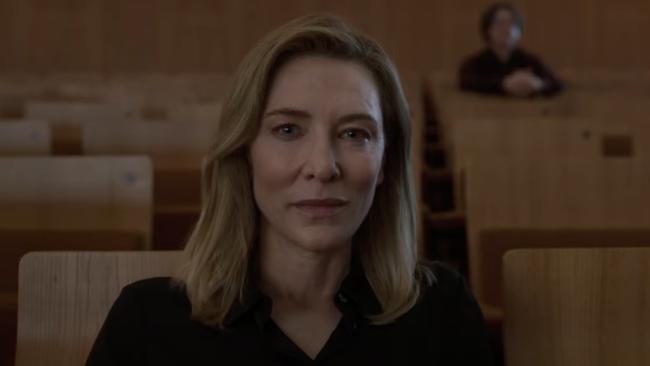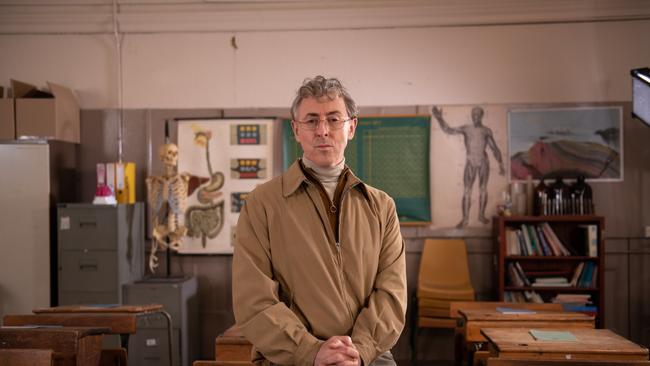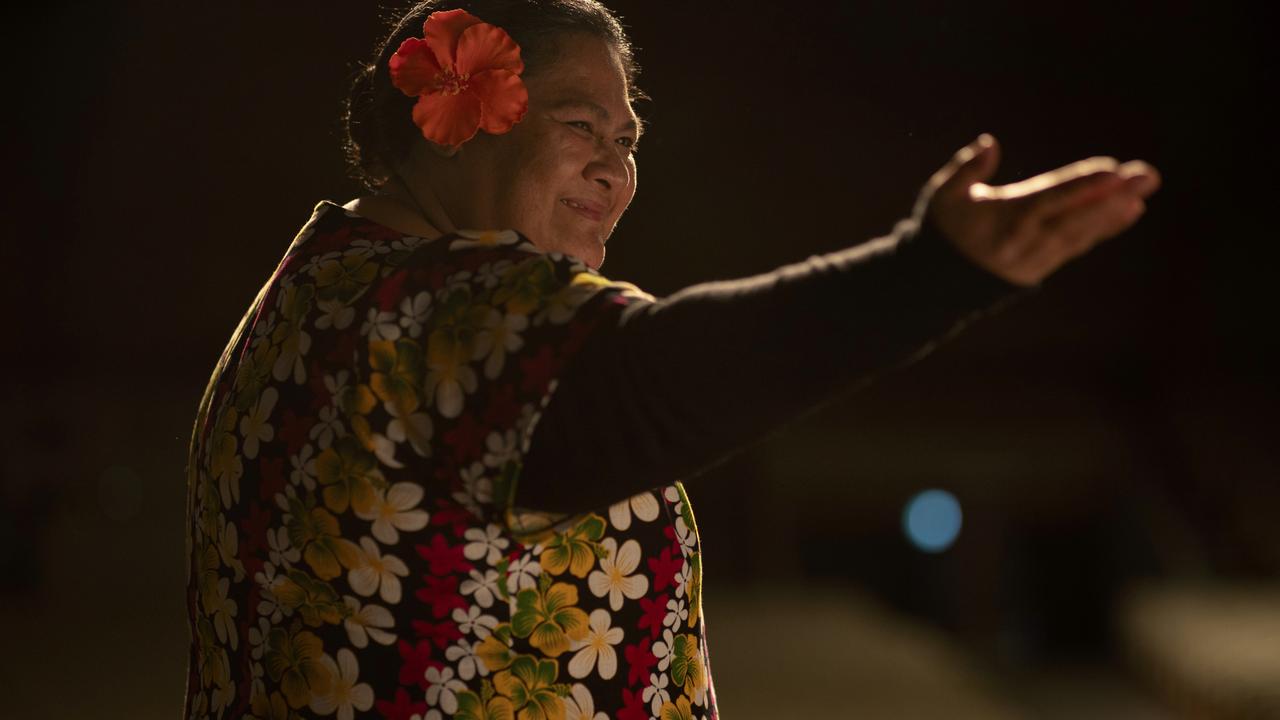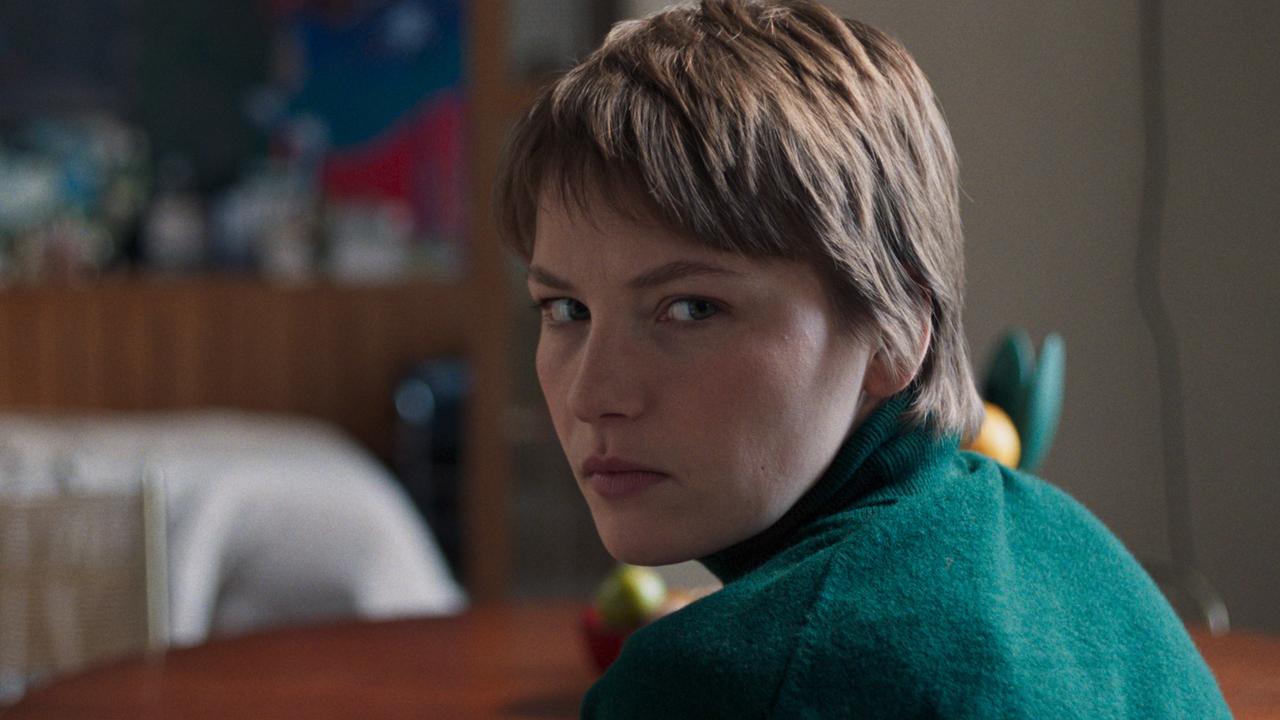Todd Field’s hugely ambitious and impressive drama, Tar
Taking us backstage into the high-end world of classical music, Tar is an intelligent, disturbing film about power, sex and art.

TAR (M)
In cinemas from Thursday
★★★★½
Todd Field’s hugely ambitious and impressive drama, Tar, is, on one level a portrait of a great artist, orchestra conductor Lydia Tar who, as every reader will know by now, is played by Cate Blanchett in what well may be the performance of her career, a performance that won the Best Actress prize in Venice last year and, more recently, a Golden Globe Award. But the film is so much more than a great performance by an astonishingly fine actor: it’s also a film about cancel culture, political correctness and the abuse of power.
If ever there were a film that reflects the time in which it was made, this is it.
In an early scene writer-director Field films a lengthy interview, in a New York theatre, in which New Yorker journalist Adam Gopnik, playing himself, chats with Tar in front of a large and enthusiastic audience. Tar is articulate, witty and supremely confident and this scene serves, in a simple but very effective way, to illustrate the conductor’s back story.
She was mentored by Leonard Bernstein, whom she revered, has conducted the Boston Symphony Orchestra and the New York Philharmonic Orchestra and for the past several years has been conductor of the Berlin Philharmonic. She has learnt German (as did Blanchett for the film) and lives in a beautiful apartment in the German capital with her wife, Sharon (Nina Hoss), and their young, adopted, Middle Eastern daughter, Petra (Mila Bogajevic) – though, as we soon discover, she also keeps a second apartment, which she ostensibly uses so that she can work in peace and quiet, though it also proves useful for other reasons.
During the course of the interview Tar, who has composed music for the movies, reveals that she’s a member of the select EGOT winners (artists who have won an Emmy, a Grammy, an Oscar and a Tony award, whose number includes Audrey Hepburn and Mel Brooks). She also reveals that she’s writing a book (“Tar on Tar”) and she defines the most important element of music as time and asserts that, in order to conduct Mahler’s Symphony No. 5, which she is about to do in Berlin, it’s essential to know all about the relationship between the composer and his wife. In other words, Tar is an obsessive control freak, although we are yet to appreciate just how controlling and demanding she really is.
In a subsequent scene, in which Tar is teaching students at the prestigious Juilliard School of Music, she humiliates a young male student, Max (Zethphan Smith-Gneist), who refuses to play Bach because he thinks the composer was a misogynist. Tar is not having any of this cancel culture: “The architect of your soul appears to be social media” she tells the young man in a withering put-down that will have ramifications later on.
Each of the people involved in Tar’s life plays an important role in the drama. There are Francesca (Noemie Merlant), her PA, a very capable, and clearly ambitious, young woman; Elliott (Mark Strong), an investment banker with whom she has established the Acccordian Conducting Fellowship, an organisation dedicated to supporting young women conductors; Sebastian (Allan Corduner), the elderly assistant conductor, who makes the mistake of criticising one of Tar’s decisions; and Olga (Sophie Kauer), the orchestra’s new cellist, a deceptively naïve young woman from Russia. Real musicians are featured as members of the orchestra.
Rarely, if ever, in the cinema has there been such a detailed and comprehensive portrait of an artist. The film celebrates Tar for her dedication and tireless enthusiasm for her work and for the ways in which she navigates the inevitable politics that lie behind the scenes of a famous orchestra but, at the same time, criticises her for her ruthlessness and deviousness.
Lydia Tar is a brilliant woman – no doubt about that. But she’s also arrogant, power-hungry and malicious. And she regularly abuses her power, confident that she is too important, too indispensable to face any consequences. She first shows her true colours when she confronts a little schoolgirl who has bullied her daughter, telling the startled child – in German – “I am Petra’s father and I am going to get you!”
One important character, only briefly glimpsed in the film, is Krista, one of the aspiring conductors Tar has pledged to support. Krista, like other young women who cross Tar’s path, has had a deeply distressing experience with the celebrated conductor.
The world of classical music concerts might seem to be a very refined one and there’s no doubt that the film, which is over 2 ½ hours long, will be a challenge for some viewers. But it’s a challenge that will be well rewarded, not only by seeing Blanchett in possibly her finest screen performance but also for the universal insights that the film so potently explores.
Todd Field began his career in film as an actor; he had a significant role in Stanley Kubrick’s Eyes Wide Shut (1999). He directed his first film, the very impressive psychological drama In the Bedroom, in 2001 and followed it with the almost equally impressive Little Children (2006). Tar is his third feature after a 16-year gap. Meticulously photographed by Florian Hoffmeister in still, beautiful Scope images, the film takes us backstage into the high-end world of classical music and the jealousies and intrigues to be found there.
In a way, Tar is as much a sexual predator as a Harvey Weinstein and Blanchett is exceptional in the role, supported by a fine cast. It’s an intelligent, disturbing film about power, sex and art.
My Old School (M)
In cinemas
★★★★
My Old School is a very original, very entertaining documentary unlike almost any other documentary I have seen. It is, in a way, a mysterious suspense movie and you should try not to find out too much about it before you see it.
In 1995, not long after the death of actor Brandon Lee on the set of The Crow, a 16-year-old also named Brandon Lee enrols in Bearsden Academy, a high school in a smart suburb of Glasgow.
He says he’s recently arrived from Canada, that his mother, an opera singer, was killed in a car crash and that he’s living with his grandmother. He looks a little bit unusual, but soon he settles in as a eager and intelligent student.
Opening titles reveal that Brandon refused to be interviewed on camera for the documentary. Instead, director Jono McLeod, himself an alumnus of Bearsden who was in the same class as Brandon, conducted an audio interview which was then spoken, on camera, by actor Alan Cumming.
Brandon’s fellow students, now in their 40s, appear sitting at old school desks providing an often amusing commentary on their memories of that period.
The gaps in the story are filled in with some attractive animation and the film as a whole is both original and very peculiar – in a good way. Contemporary TV news reports are also incorporated. I didn’t work out just what was unfolding until well into the film, which made the ultimate twists and revelations all the more satisfying. Truth, as we all know, is stranger than fiction.
Incidentally, in one scene Brandon and his school friends go to the cinema; blink and you’ll miss it but the film they go to see, according to the title on the cinema marquee, is Muriel’s Wedding.





To join the conversation, please log in. Don't have an account? Register
Join the conversation, you are commenting as Logout